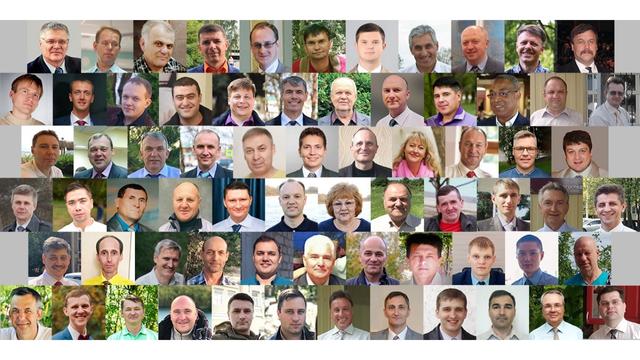In a historic decision of June 7, the judges denounced the Russian concept of “extremism” as a tool used to violate religious liberty.
by Massimo Introvigne


On June 7, 2022, the European Court of Human Rights in the case “Taganrog LRO and Others v. Russia” rendered a historic decision that declared the Russian liquidation of the Jehovah’s Witnesses and the repression of this religious organization in Russia unlawful. The decision concerned twenty different cases about the Jehovah’s Witnesses in Russia, which were consolidated. “Taganrog LRO” refers to the local branch of the Jehovah’s Witnesses in Taganrog, in the Rostov Oblast, whose liquidation was ordered in 2009.
In 2017, the national Administrative Center of the Jehovah’s Witnesses in Russia was also “liquidated” pursuant to a decision by the Supreme Court, as it had previously happened to other local branches. Individual Witnesses were arrested and prosecuted, publications were banned, and access to the international website of the Jehovah’s Witnesses JW.org was blocked in Russia.
In a detailed decision, the ECHR noted that all these measures are part of “a policy of intolerance by the Russian authorities towards the religious practices of Jehovah’s Witnesses designed to cause Jehovah’s Witnesses to abandon their faith and to prevent others from joining it.” The Court reaffirmed its long-held principle that “respect for religious diversity undoubtedly represents one of the most important challenges to be faced today; for that reason, the authorities must perceive religious diversity not as a threat but as a source of enrichment.”
In Russia, authorities did just the opposite. “The use of an excessively broad wording of the extremism legislation to disband the communities of Jehovah’s Witnesses across Russia, the breaking-up of their religious meetings, the confiscation of their religious publications, searches in their homes and places of worship, surveillance by the security services, and other forms of interference with their religious practices reinforce this conclusion,” the Court said.
The decision is almost two hundred pages long, and examines several topics. However, its center is the notion of “extremism.” Russian law bans as “religious extremists” organizations and publications that do not advocate violence but merely present their beliefs and practices as “superior” to others. In practice, Russian courts interpret “religious extremism” as the claim that a religious path is superior to the one proposed by the Russian Orthodox Church (ROC). Indeed, the decision notes the important role ROC priests and “experts” played in the process leading to the “liquidation” of the Jehovah’s Witnesses in Russia.
The Court, confirming its previous case law, noted procedural problems in identifying “extremism” in Russia. First, “the [Russian] courts simply endorsed conclusions drawn up by experts selected by the prosecutors and the police and made no attempt to conduct their own legal analysis.” Second, “Russian law did not allow affected parties to participate in the proceedings under the Suppression of Extremism Act, which meant that their arguments could not be heard.”
On the substance of the matter, the ECHR observed that, “The banning of Jehovah’s Witnesses’ publications, even though they contained no statements advocating violence, hatred or intimidation was only possible because the definition of ‘extremism’ in Russian law was overly broad and could be applied to entirely peaceful forms of expression.” The Court stated that “peaceful and non-violent attempts to persuade others of the virtues of one’s own religion and the flaws of others and to urge them to abandon ‘false religions’ and join the ‘true one’” are “a legitimate form of freedom of religion and expression.”
“Even accepting that the texts [used to prove that they were “extremists”] promoted the idea that the religion of Jehovah’s Witnesses was superior to others or that it was better to be a Jehovah’s Witness than a member of another Christian denomination, it is significant that the texts did not insult, hold up to ridicule or slander non-Witnesses; nor did they use abusive terms in respect of them or of matters regarded as sacred by them.”
The Court concurred “with the Venice Commission in that there is nothing extremist about criticizing, ‘even harshly and unreasonably, belief systems, opinions, and institutions, as long as this does not amount to advocating hatred against an individual or groups.’ Peacefully seeking to convince others of the superiority of one’s own religion and urging them to abandon ‘false religions’ and join the ‘true one’ is a legitimate form of exercise of the right to freedom of religion and freedom of expression which enjoys the protection under Articles 9 and 10 of the [European] Convention [on Human Rights].”
Of course, promoting one’s own religion through violence or incitement to violence is not permissible. However, the ECHR “failed to identify evidence of the use of any improper methods to persuade others to prefer the religion of Jehovah’s Witnesses. Not one of the banned publications was found to contain calls or incitement to violence or any insulting, slanderous or discriminatory statements against members of other faiths.”
Summing up, “the interference with the applicants’ fundamental rights was made possible because of the overly broad definition of ‘extremism’ in Russian law.” In fact, “the extremely broad definition of ‘extremist activities’ in section 1 of the Suppression of Extremism Act which does not require any elements of violence or hatred opens up the possibility of having individuals and organizations prosecuted on extremism charges for entirely peaceful forms of expression or worship.” The Russian definition of “extremism” “not only could—and did—lead to arbitrary prosecutions, but also prevented individuals or organizations from being able to anticipate that their conduct, however peaceful and devoid of hatred or animosity it was, could be categorized as ‘extremist’ and censured with restrictive measures.”
The ECHR concluded that “the definitions of ‘extremism’ and ‘extremist activities’ in section 1 of the Suppression of Extremism Act, as formulated and applied in practice by the Russian authorities, fell short of the lawfulness requirement.”
While these findings and the consequence that all measures against the Jehovah’s Witnesses should be annulled and their properties returned to them were adopted by the ECHR by six votes against one—only a Russian judge disagreed—the further conclusion that Russia was to take all necessary measures to discontinue pending criminal proceedings against Jehovah’s Witnesses and to release those in prison, was reached by four votes to three. This shows the reluctance of some judges to apply Article 46 of the European Convention on Human Rights to interfere in pending criminal proceedings. However, in the end even this conclusion was adopted.
Russia was also ordered to pay the applicants a total of EUR 59,617,458 ($63,684,978 USD) for pecuniary damage (mainly seized property) and EUR 3,447,250 ($3,682,445 USD) in respect of non-pecuniary damage.
Some may object that the decision has a symbolic scope only, since Russia is no longer a member of the Council of Europe (CoE) and had announced even before that it would not regard itself as bound by the ECHR decisions. However, the facts examined by the ECHR happened when Russia was still part of the Council of Europe, and legally Russia is still under an obligation to respect the decision. It is unlikely to do it, though, but we can hope that one day Russia will take back its place at the common table of European countries and abide by the ECHR decisions.
Meanwhile, other CoE member states will benefit from this decision. From it, they can clearly see that Jehovah’s Witnesses were defined as a peaceful, legitimate “Christian denomination” that does not pose any threat to the community. Their evangelizing work, the Court said, is fully legitimate, and the behavior and religious practices of the believers is the result of independent and free decisions. The ECHR also confirmed that the Witnesses’ choices in the medical field are also legitimate and should be respected. It also highlighted that while frictions may result from religious beliefs, the ensuing estrangement cannot be taken to mean that the religion caused the break-up in the family.
States were also reminded that even if they disagree with some of the beliefs and practices of the Jehovah’s Witnesses, they should still respect their freedom of religion.









